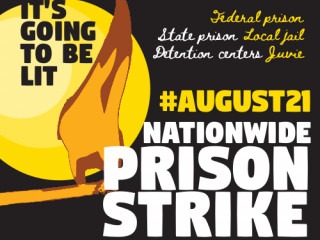 Paraphrased from here: Bob Woodward’s book gets released this week. Donald Trump has nothing to fear but Fear itself
Paraphrased from here: Bob Woodward’s book gets released this week. Donald Trump has nothing to fear but Fear itself
Someone inaccurately describes libel law
The Weekly Sift: What should we make of “Anonymous”?
‘Designing Women’ Creator Goes Public With Les Moonves War: Not All Harassment Is Sexual
Vlogbrothers: The Book Was Better? and the episode in which it turns out that John did not forget about Hank’s birthday
Stephen Colbert – The Rolling Stone Interview
Scientist robbed of Nobel Prize gets $3 million science award
Our local minor-league baseball team! The Tri-Cities ValleyCats lay claim to New York-Penn League’s top dogs
Portrait of an Artist as an Old Man: Mel Brooks in His 90s
You Should Always Put a Quarter on a Frozen Cup of Water Before a Power Outage
The perfect guide to the perfect gift
Comparative religion, squirrel division
Tony Isabella, “black Lightning”, and creator credit
Congrats to Dustbury on 3 million visits to his blog
Now I Know: A Really Bad Way to Become a Senator and The First Digital Camera (That Wasn’t) and Los Angeles’ One Waze Street and Who Kept the Dogs Out
Cut THIS cheese from your diet
The Facts Concerning the Recent Carnival of Crime in Connecticut – Mark Twain, June 1876
MUSIC
Leonard Bernstein conducting Aaron Copland’s Appalachian Spring ballet
Elegy by Mark Camphouse, played by the United States Marine Band
Coverville 1231: Led Zeppelin Cover Story V and When the Levee Breaks – Zepparella
Coverville 1233: Cover Stories for Michael Jackson and Amy Winehouse
Suppe overture. Morning, Noon, and Night in Vienna
Train to Nowhere – The Champs (plus its B-side)
Weekend Diversion: Imagine Dragons
Ascending Bird – Yo Yo Ma and the Silk Road Ensemble
K-Chuck Radio: More Forgotten 1960’s Classics
The Sound of Silence – Harp Twins
Vibes – Vivian Green (no relation)
Old Movie Stars Dance to Uptown Funk
Paul McCartney Breaks Down His Most Iconic Songs
The many voices of late Thurl Ravenscroft
The graphic is courtesy of Amanda Peterson at Enlightened Digital

 Listening to my Stax/Volt box sets – plural, nine CDs each – I came across two extraordinary hit singles AND their
Listening to my Stax/Volt box sets – plural, nine CDs each – I came across two extraordinary hit singles AND their  I got the results of my second genealogical DNA recently, this time from Ancestry.
I got the results of my second genealogical DNA recently, this time from Ancestry.  After attending the ASBDC conference – that’s America’s Small Business Development Centers – my library colleague Judith from Texas sent me the September 7, 2018 issue of The Scout Report (Volume 24, Number 36), part of Internet Scout, apparently.
After attending the ASBDC conference – that’s America’s Small Business Development Centers – my library colleague Judith from Texas sent me the September 7, 2018 issue of The Scout Report (Volume 24, Number 36), part of Internet Scout, apparently. 